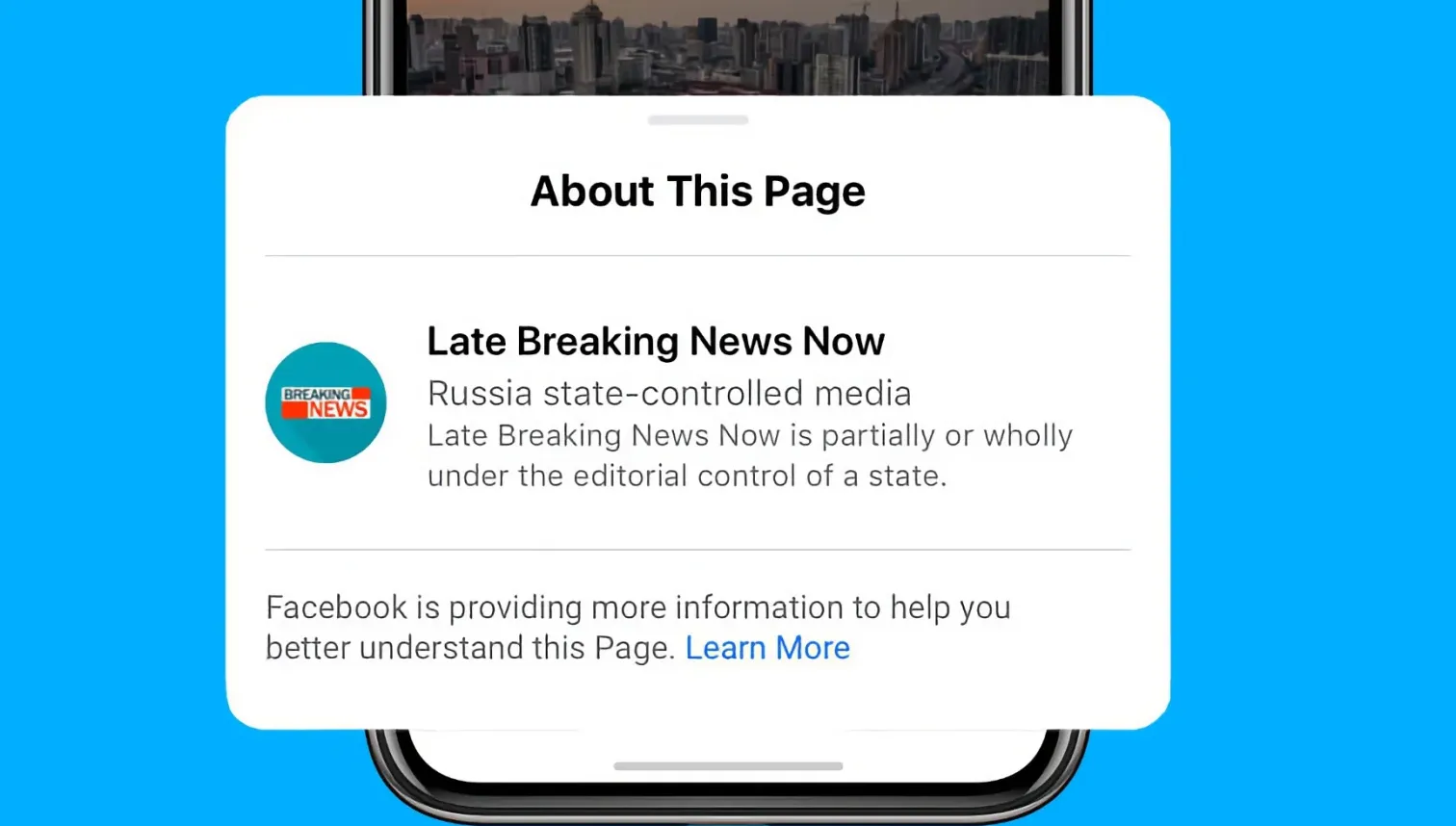Facebook Labels for State-Controlled Media May Decrease User Engagement
According to a recent study, Facebook’s labeling of content from “state-controlled media” seems to have a negative impact on user engagement with posts from authoritarian countries like China and Russia. Users showed decreased interest in content labeled as originating from government-run media of these nations. However, the study also found that the labels had a positive effect on user favorability towards posts from Canadian state media. This suggests that broader perceptions of a country may influence the effectiveness of these tags.
Researchers from Carnegie Mellon University, Indiana University, and the University of Texas at Austin conducted a series of studies that “examined the causal influence of these labels on users’ intentions to engage with Facebook content.” When users noticed the label, they tended to reduce their commitment to it when they viewed the country negatively.
The first experiment surveyed 1,200 people with US Facebook accounts – with or without state-controlled media labels. Although their engagement with messages originating from Russia and China decreased, it only had an effect if they “actively labeled”. The second test in the series looked at 2,000 US Facebook users to determine if their behavior was “linked to public sentiment towards the country on the label”. In other words, they responded positively to media labeled as Canadian state-controlled and negatively to content maintained by the Chinese and Russian governments.

Finally, a third experiment examined the extent to which Facebook users interacted with state-controlled media before and after the platform added tags. They concluded that the change had a “significant impact,” as sharing of tagged posts dropped by 34 percent after the change, and user likes of tagged posts dropped by 46 percent. The paper’s authors also noted that educating users about the stickers (“notifying them of their presence and testing their meaning”) significantly increased their likelihood of noticing them.
“Our three studies suggest that state-controlled media tags reduced the spread of misinformation and propaganda on Facebook, depending on which countries were tagged,” study leader Patricia L. Moravec wrote in the paper’s summary.
However, the studies had some limitations in determining correlation and causation. The authors say they couldn’t fully confirm whether their results were due to the stickers or Facebook’s opaque news feed algorithms, which link posts down (and make related third-party research very difficult more broadly). The paper’s authors also note that the experiments measured online users’ “beliefs, intentions to share, and intentions to like pages,” but not their actual behavior.
The researchers (not surprisingly, based on the results) recommend that social enterprises “clearly warn and inform users about changes in tagging policies, explain what they mean, and display tags as they are perceived by users.”
As the world grapples with online misinformation and propaganda, research leaders are calling on Facebook and other social platforms to do more. “While there are efforts to reduce the spread of misinformation on social media platforms, efforts to reduce the impact of propaganda may be less successful,” suggests co-author Nicholas Wolczynski. “Since Facebook introduced the new labels quietly without notifying users, many likely did not notice the labels, which dramatically reduced their effectiveness.”




